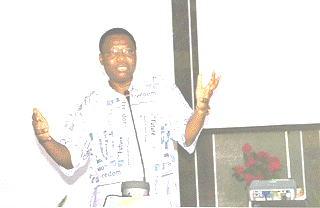":""}}
FirstColPos=Nav4?FrstLoc.document:FrstLoc.document.body;
SecColPos=Nav4?ScLoc.document:ScLoc.document.body;
DocColPos=Nav4?DcLoc.document:ScLoc.document.body;
if (TakeOverBgColor)FirstColPos.bgColor=AcrssFrms?SecColPos.bgColor:DocColPos.bgColor;
if(MenuCentered=='justify'&&FirstLineHorizontal)ClcJus();
if(FrstCreat){
FrstCntnr=CreateMenuStructure('Menu',NoOffFirstLineMenus);
FrstCreat=AcrssFrms?0:1}
else CreateMenuStructureAgain('Menu',NoOffFirstLineMenus);
if(TargetLoc)ClcTrgt();
if(MenuCentered)ClcLft();
if(MenuVerticalCentered)ClcTp();
PosMenu(FrstCntnr,StartTop,StartLeft);
IniFlg=1;
Initiate();
Creatd=1;
if (AcrssFrms) //Added for Opera
{ //Added for Opera
ScLdAgainWin=ExpYes?ScLoc.document.body:ScLoc;
ScLdAgainWin.onunload=UnLoaded;
} //Added for Opera
Trigger.onresize=Nav4?ReDoWhole:RePos;
AfterBuild();
if(MenuVerticalCentered=='static'&&!AcrssFrms)setInterval('KeepPos()',250);
status='Menu ready for use'}
function KeepPos(){
// var TS=ExpYes?FrstLoc.document.body.scrollTop:FrstLoc.pageYOffset;
var TS= typeof FrstLoc.pageYOffset != 'undefined' ?
FrstLoc.pageYOffset :
FrstLoc.document.documentElement &&
FrstLoc.document.documentElement.scrollTop ?
FrstLoc.document.documentElement.scrollTop :
FrstLoc.document.body.scrollTop;
if(TS!=StaticPos){
var FCStyle=Nav4?FrstCntnr:FrstCntnr.style;
FrstCntnr.OrgTop=StartTop+TS;FCStyle.top=FrstCntnr.OrgTop+'px';StaticPos=TS}}
function ClcJus(){
var a=BorderBtwnElmnts?1:2,b=BorderBtwnElmnts?BorderWidth:0;
var Size=Math.round(((FrstWinWdth-a*BorderWidth)/NoOffFirstLineMenus)-b),i,j;
for(i=1;iScWinWdth+LScrlld)SubLt=ScWinWdth+LScrlld-CCW}
else{ if(SubLt+CCW>ScWinWdth+LScrlld)SubLt=this.Level==1?ScWinWdth+LScrlld-CCW:SubLt-(CCW+(1-2*ChildOverlap)*ThisWt);
if(SubLtTpScrlld+ScWinHght)SubTp=this.Level==1?SubTp=TpScrlld+ScWinHght-CCH:SubTp-CCH+(1-2*ChildVerticalOverlap)*ThisHt;
if(SubTp"}
this.value=MemVal;
if(RcrsLvl==1){
a=LowBgColor;
b=HighBgColor;
c=FontLowColor;
d=FontHighColor}
else{ a=LowSubBgColor;
b=HighSubBgColor;
c=FontSubLowColor;
d=FontSubHighColor}
this.LoBck=a;
this.LwFntClr=c;
this.HiBck=b;
this.HiFntClr=d;
this.style.color=this.LwFntClr;
if(this.LoBck)this.style.backgroundColor=this.LoBck;
this.style.textAlign=MenuTextCentered;
if(eval(WhatMenu+'[2]'))this.style.backgroundImage="url(\'"+eval(WhatMenu+'[2]')+"\')";
if(MemVal.indexOf(' ";
this.innerHTML=MemVal}}
if(ExpYes){this.onselectstart=CnclSlct;
this.onmouseover=RcrsLvl==1&&UnfoldsOnClick?OpenMenuClick:OpenMenu;
this.onmouseout=CloseMenu;
this.onclick=RcrsLvl==1&&UnfoldsOnClick&&eval(WhatMenu+'[3]')?OpenMenu:GoTo }
else{ RcrsLvl==1&&UnfoldsOnClick?this.addEventListener('mouseover',OpenMenuClick,false):this.addEventListener('mouseover',OpenMenu,false);
this.addEventListener('mouseout',CloseMenu,false);
RcrsLvl==1&&UnfoldsOnClick&&eval(WhatMenu+'[3]')?this.addEventListener('click',OpenMenu,false):this.addEventListener('click',GoTo,false)}}
function NavMbrSetUp(MmbrCntnr,PrMmbr,WhatMenu,Wdth,Hght){
var a,b,c,d;
if(RcrsLvl==1){
a=LowBgColor;
b=HighBgColor;
c=FontLowColor;
d=FontHighColor}
else { a=LowSubBgColor;
b=HighSubBgColor;
c=FontSubLowColor;
d=FontSubHighColor }
this.value=eval(WhatMenu+'[0]');
this.ro=0;
if(this.value.indexOf('rollover')!=-1){
this.ro=1;
this.ri1=this.value.substring(this.value.indexOf(':')+1,this.value.lastIndexOf(':'));
this.ri2=this.value.substring(this.value.lastIndexOf(':')+1,this.value.length);
this.rid=WhatMenu+'i';this.value="
";
this.innerHTML=MemVal}}
if(ExpYes){this.onselectstart=CnclSlct;
this.onmouseover=RcrsLvl==1&&UnfoldsOnClick?OpenMenuClick:OpenMenu;
this.onmouseout=CloseMenu;
this.onclick=RcrsLvl==1&&UnfoldsOnClick&&eval(WhatMenu+'[3]')?OpenMenu:GoTo }
else{ RcrsLvl==1&&UnfoldsOnClick?this.addEventListener('mouseover',OpenMenuClick,false):this.addEventListener('mouseover',OpenMenu,false);
this.addEventListener('mouseout',CloseMenu,false);
RcrsLvl==1&&UnfoldsOnClick&&eval(WhatMenu+'[3]')?this.addEventListener('click',OpenMenu,false):this.addEventListener('click',GoTo,false)}}
function NavMbrSetUp(MmbrCntnr,PrMmbr,WhatMenu,Wdth,Hght){
var a,b,c,d;
if(RcrsLvl==1){
a=LowBgColor;
b=HighBgColor;
c=FontLowColor;
d=FontHighColor}
else { a=LowSubBgColor;
b=HighSubBgColor;
c=FontSubLowColor;
d=FontSubHighColor }
this.value=eval(WhatMenu+'[0]');
this.ro=0;
if(this.value.indexOf('rollover')!=-1){
this.ro=1;
this.ri1=this.value.substring(this.value.indexOf(':')+1,this.value.lastIndexOf(':'));
this.ri2=this.value.substring(this.value.lastIndexOf(':')+1,this.value.length);
this.rid=WhatMenu+'i';this.value=" "}
if(LeftPaddng&&this.value.indexOf('"+this.value+TxtClose;
this.Ovalue=CntrTxt+""+this.Ovalue+TxtClose;
this.LoBck=a;
this.HiBck=b;
this.ChildCntnr=null;
this.PrvMbr=PrMmbr;
this.Hilite=0;
this.visibility='inherit';
if(this.LoBck)this.bgColor=this.LoBck;
this.resizeTo(Wdth,Hght);
if(!AcrssFrms&&eval(WhatMenu+'[2]'))this.background.src=eval(WhatMenu+'[2]');
this.document.write(this.value);
this.document.close();
this.CmdLyr=new Layer(Wdth,MmbrCntnr);
this.CmdLyr.Level=RcrsLvl;
this.CmdLyr.LinkTxt=eval(WhatMenu+'[1]');
this.CmdLyr.visibility='inherit';
this.CmdLyr.onmouseover=RcrsLvl==1&&UnfoldsOnClick?OpenMenuClick:OpenMenu;
this.CmdLyr.onmouseout=CloseMenu;
this.CmdLyr.captureEvents(Event.MOUSEUP);
this.CmdLyr.onmouseup=RcrsLvl==1&&UnfoldsOnClick&&eval(WhatMenu+'[3]')?OpenMenu:GoTo;
this.CmdLyr.LowLyr=this;
this.CmdLyr.resizeTo(Wdth,Hght);
this.CmdLyr.Container=MmbrCntnr;
if(eval(WhatMenu+'[3]')&&ShowArrow){
a=RcrsLvl==1&&FirstLineHorizontal?3:RightToLeft?6:0;
this.CmdLyr.ImgLyr=new Layer(Arrws[a+1],this.CmdLyr);
this.CmdLyr.ImgLyr.visibility='inherit';
this.CmdLyr.ImgLyr.top=RcrsLvl==1&&FirstLineHorizontal?Hght-Arrws[a+2]-2:(Hght-Arrws[a+2])/2;
this.CmdLyr.ImgLyr.left=RightToLeft?2:Wdth-Arrws[a+1]-2;
this.CmdLyr.ImgLyr.width=Arrws[a+1];
this.CmdLyr.ImgLyr.height=Arrws[a+2];
ImgStr="
"}
if(LeftPaddng&&this.value.indexOf('"+this.value+TxtClose;
this.Ovalue=CntrTxt+""+this.Ovalue+TxtClose;
this.LoBck=a;
this.HiBck=b;
this.ChildCntnr=null;
this.PrvMbr=PrMmbr;
this.Hilite=0;
this.visibility='inherit';
if(this.LoBck)this.bgColor=this.LoBck;
this.resizeTo(Wdth,Hght);
if(!AcrssFrms&&eval(WhatMenu+'[2]'))this.background.src=eval(WhatMenu+'[2]');
this.document.write(this.value);
this.document.close();
this.CmdLyr=new Layer(Wdth,MmbrCntnr);
this.CmdLyr.Level=RcrsLvl;
this.CmdLyr.LinkTxt=eval(WhatMenu+'[1]');
this.CmdLyr.visibility='inherit';
this.CmdLyr.onmouseover=RcrsLvl==1&&UnfoldsOnClick?OpenMenuClick:OpenMenu;
this.CmdLyr.onmouseout=CloseMenu;
this.CmdLyr.captureEvents(Event.MOUSEUP);
this.CmdLyr.onmouseup=RcrsLvl==1&&UnfoldsOnClick&&eval(WhatMenu+'[3]')?OpenMenu:GoTo;
this.CmdLyr.LowLyr=this;
this.CmdLyr.resizeTo(Wdth,Hght);
this.CmdLyr.Container=MmbrCntnr;
if(eval(WhatMenu+'[3]')&&ShowArrow){
a=RcrsLvl==1&&FirstLineHorizontal?3:RightToLeft?6:0;
this.CmdLyr.ImgLyr=new Layer(Arrws[a+1],this.CmdLyr);
this.CmdLyr.ImgLyr.visibility='inherit';
this.CmdLyr.ImgLyr.top=RcrsLvl==1&&FirstLineHorizontal?Hght-Arrws[a+2]-2:(Hght-Arrws[a+2])/2;
this.CmdLyr.ImgLyr.left=RightToLeft?2:Wdth-Arrws[a+1]-2;
this.CmdLyr.ImgLyr.width=Arrws[a+1];
this.CmdLyr.ImgLyr.height=Arrws[a+2];
ImgStr=" ";
this.CmdLyr.ImgLyr.document.write(ImgStr);
this.CmdLyr.ImgLyr.document.close()}}
function CreateMenuStructure(MName,NumberOf){
RcrsLvl++;
var i,NoOffSubs,Mbr,Wdth=0,Hght=0;
var PrvMmbr=null;
var WMnu=MName+'1';
var MenuWidth=eval(WMnu+'[5]');
var MenuHeight=eval(WMnu+'[4]');
var Location=RcrsLvl==1?FrstLoc:ScLoc;
if (RcrsLvl==1&&FirstLineHorizontal){
for(i=1;i");
var MmbrCntnr=Location.document.all[WMnu]}}
MmbrCntnr.SetUp=CntnrSetUp;
MmbrCntnr.SetUp(Wdth,Hght,NumberOf);
if(Exp4){ MmbrCntnr.InnerString='';
for(i=1;i"}
MmbrCntnr.innerHTML=MmbrCntnr.InnerString}
for(i=1;i0;i--){
WMnu=MName+eval(i);
NoOffSubs=eval(WMnu+'[3]');
PrvMmbr=Mbr;
if(NoOffSubs)Mbr.ChildCntnr=CreateMenuStructure(WMnu+'_',NoOffSubs);
Mbr=Mbr.PrvMbr}
RcrsLvl--}
function BeforeStart(){return}
function AfterBuild(){return}
function BeforeFirstOpen(){return}
function AfterCloseAll(){return}
Document sans titre
";
this.CmdLyr.ImgLyr.document.write(ImgStr);
this.CmdLyr.ImgLyr.document.close()}}
function CreateMenuStructure(MName,NumberOf){
RcrsLvl++;
var i,NoOffSubs,Mbr,Wdth=0,Hght=0;
var PrvMmbr=null;
var WMnu=MName+'1';
var MenuWidth=eval(WMnu+'[5]');
var MenuHeight=eval(WMnu+'[4]');
var Location=RcrsLvl==1?FrstLoc:ScLoc;
if (RcrsLvl==1&&FirstLineHorizontal){
for(i=1;i");
var MmbrCntnr=Location.document.all[WMnu]}}
MmbrCntnr.SetUp=CntnrSetUp;
MmbrCntnr.SetUp(Wdth,Hght,NumberOf);
if(Exp4){ MmbrCntnr.InnerString='';
for(i=1;i"}
MmbrCntnr.innerHTML=MmbrCntnr.InnerString}
for(i=1;i0;i--){
WMnu=MName+eval(i);
NoOffSubs=eval(WMnu+'[3]');
PrvMmbr=Mbr;
if(NoOffSubs)Mbr.ChildCntnr=CreateMenuStructure(WMnu+'_',NoOffSubs);
Mbr=Mbr.PrvMbr}
RcrsLvl--}
function BeforeStart(){return}
function AfterBuild(){return}
function BeforeFirstOpen(){return}
function AfterCloseAll(){return}
Document sans titre
Nairobi Workshop
| |
|
AFRICAN ACADEMY OF LANGUAGES
(ACALAN)
AFRICAN UNION COMMISSION |
|
|
|
|
|
|
|
 |
|
|
|
| |
":""}}
FirstColPos=Nav4?FrstLoc.document:FrstLoc.document.body;
SecColPos=Nav4?ScLoc.document:ScLoc.document.body;
DocColPos=Nav4?DcLoc.document:ScLoc.document.body;
if (TakeOverBgColor)FirstColPos.bgColor=AcrssFrms?SecColPos.bgColor:DocColPos.bgColor;
if(MenuCentered=='justify'&&FirstLineHorizontal)ClcJus();
if(FrstCreat){
FrstCntnr=CreateMenuStructure('Menu',NoOffFirstLineMenus);
FrstCreat=AcrssFrms?0:1}
else CreateMenuStructureAgain('Menu',NoOffFirstLineMenus);
if(TargetLoc)ClcTrgt();
if(MenuCentered)ClcLft();
if(MenuVerticalCentered)ClcTp();
PosMenu(FrstCntnr,StartTop,StartLeft);
IniFlg=1;
Initiate();
Creatd=1;
if (AcrssFrms) //Added for Opera
{ //Added for Opera
ScLdAgainWin=ExpYes?ScLoc.document.body:ScLoc;
ScLdAgainWin.onunload=UnLoaded;
} //Added for Opera
Trigger.onresize=Nav4?ReDoWhole:RePos;
AfterBuild();
if(MenuVerticalCentered=='static'&&!AcrssFrms)setInterval('KeepPos()',250);
status='Menu ready for use'}
function KeepPos(){
// var TS=ExpYes?FrstLoc.document.body.scrollTop:FrstLoc.pageYOffset;
var TS= typeof FrstLoc.pageYOffset != 'undefined' ?
FrstLoc.pageYOffset :
FrstLoc.document.documentElement &&
FrstLoc.document.documentElement.scrollTop ?
FrstLoc.document.documentElement.scrollTop :
FrstLoc.document.body.scrollTop;
if(TS!=StaticPos){
var FCStyle=Nav4?FrstCntnr:FrstCntnr.style;
FrstCntnr.OrgTop=StartTop+TS;FCStyle.top=FrstCntnr.OrgTop+'px';StaticPos=TS}}
function ClcJus(){
var a=BorderBtwnElmnts?1:2,b=BorderBtwnElmnts?BorderWidth:0;
var Size=Math.round(((FrstWinWdth-a*BorderWidth)/NoOffFirstLineMenus)-b),i,j;
for(i=1;iScWinWdth+LScrlld)SubLt=ScWinWdth+LScrlld-CCW}
else{ if(SubLt+CCW>ScWinWdth+LScrlld)SubLt=this.Level==1?ScWinWdth+LScrlld-CCW:SubLt-(CCW+(1-2*ChildOverlap)*ThisWt);
if(SubLtTpScrlld+ScWinHght)SubTp=this.Level==1?SubTp=TpScrlld+ScWinHght-CCH:SubTp-CCH+(1-2*ChildVerticalOverlap)*ThisHt;
if(SubTp"}
this.value=MemVal;
if(RcrsLvl==1){
a=LowBgColor;
b=HighBgColor;
c=FontLowColor;
d=FontHighColor}
else{ a=LowSubBgColor;
b=HighSubBgColor;
c=FontSubLowColor;
d=FontSubHighColor}
this.LoBck=a;
this.LwFntClr=c;
this.HiBck=b;
this.HiFntClr=d;
this.style.color=this.LwFntClr;
if(this.LoBck)this.style.backgroundColor=this.LoBck;
this.style.textAlign=MenuTextCentered;
if(eval(WhatMenu+'[2]'))this.style.backgroundImage="url(\'"+eval(WhatMenu+'[2]')+"\')";
if(MemVal.indexOf(' ";
this.innerHTML=MemVal}}
if(ExpYes){this.onselectstart=CnclSlct;
this.onmouseover=RcrsLvl==1&&UnfoldsOnClick?OpenMenuClick:OpenMenu;
this.onmouseout=CloseMenu;
this.onclick=RcrsLvl==1&&UnfoldsOnClick&&eval(WhatMenu+'[3]')?OpenMenu:GoTo }
else{ RcrsLvl==1&&UnfoldsOnClick?this.addEventListener('mouseover',OpenMenuClick,false):this.addEventListener('mouseover',OpenMenu,false);
this.addEventListener('mouseout',CloseMenu,false);
RcrsLvl==1&&UnfoldsOnClick&&eval(WhatMenu+'[3]')?this.addEventListener('click',OpenMenu,false):this.addEventListener('click',GoTo,false)}}
function NavMbrSetUp(MmbrCntnr,PrMmbr,WhatMenu,Wdth,Hght){
var a,b,c,d;
if(RcrsLvl==1){
a=LowBgColor;
b=HighBgColor;
c=FontLowColor;
d=FontHighColor}
else { a=LowSubBgColor;
b=HighSubBgColor;
c=FontSubLowColor;
d=FontSubHighColor }
this.value=eval(WhatMenu+'[0]');
this.ro=0;
if(this.value.indexOf('rollover')!=-1){
this.ro=1;
this.ri1=this.value.substring(this.value.indexOf(':')+1,this.value.lastIndexOf(':'));
this.ri2=this.value.substring(this.value.lastIndexOf(':')+1,this.value.length);
this.rid=WhatMenu+'i';this.value=" ";
this.innerHTML=MemVal}}
if(ExpYes){this.onselectstart=CnclSlct;
this.onmouseover=RcrsLvl==1&&UnfoldsOnClick?OpenMenuClick:OpenMenu;
this.onmouseout=CloseMenu;
this.onclick=RcrsLvl==1&&UnfoldsOnClick&&eval(WhatMenu+'[3]')?OpenMenu:GoTo }
else{ RcrsLvl==1&&UnfoldsOnClick?this.addEventListener('mouseover',OpenMenuClick,false):this.addEventListener('mouseover',OpenMenu,false);
this.addEventListener('mouseout',CloseMenu,false);
RcrsLvl==1&&UnfoldsOnClick&&eval(WhatMenu+'[3]')?this.addEventListener('click',OpenMenu,false):this.addEventListener('click',GoTo,false)}}
function NavMbrSetUp(MmbrCntnr,PrMmbr,WhatMenu,Wdth,Hght){
var a,b,c,d;
if(RcrsLvl==1){
a=LowBgColor;
b=HighBgColor;
c=FontLowColor;
d=FontHighColor}
else { a=LowSubBgColor;
b=HighSubBgColor;
c=FontSubLowColor;
d=FontSubHighColor }
this.value=eval(WhatMenu+'[0]');
this.ro=0;
if(this.value.indexOf('rollover')!=-1){
this.ro=1;
this.ri1=this.value.substring(this.value.indexOf(':')+1,this.value.lastIndexOf(':'));
this.ri2=this.value.substring(this.value.lastIndexOf(':')+1,this.value.length);
this.rid=WhatMenu+'i';this.value=" "}
if(LeftPaddng&&this.value.indexOf('"+this.value+TxtClose;
this.Ovalue=CntrTxt+""+this.Ovalue+TxtClose;
this.LoBck=a;
this.HiBck=b;
this.ChildCntnr=null;
this.PrvMbr=PrMmbr;
this.Hilite=0;
this.visibility='inherit';
if(this.LoBck)this.bgColor=this.LoBck;
this.resizeTo(Wdth,Hght);
if(!AcrssFrms&&eval(WhatMenu+'[2]'))this.background.src=eval(WhatMenu+'[2]');
this.document.write(this.value);
this.document.close();
this.CmdLyr=new Layer(Wdth,MmbrCntnr);
this.CmdLyr.Level=RcrsLvl;
this.CmdLyr.LinkTxt=eval(WhatMenu+'[1]');
this.CmdLyr.visibility='inherit';
this.CmdLyr.onmouseover=RcrsLvl==1&&UnfoldsOnClick?OpenMenuClick:OpenMenu;
this.CmdLyr.onmouseout=CloseMenu;
this.CmdLyr.captureEvents(Event.MOUSEUP);
this.CmdLyr.onmouseup=RcrsLvl==1&&UnfoldsOnClick&&eval(WhatMenu+'[3]')?OpenMenu:GoTo;
this.CmdLyr.LowLyr=this;
this.CmdLyr.resizeTo(Wdth,Hght);
this.CmdLyr.Container=MmbrCntnr;
if(eval(WhatMenu+'[3]')&&ShowArrow){
a=RcrsLvl==1&&FirstLineHorizontal?3:RightToLeft?6:0;
this.CmdLyr.ImgLyr=new Layer(Arrws[a+1],this.CmdLyr);
this.CmdLyr.ImgLyr.visibility='inherit';
this.CmdLyr.ImgLyr.top=RcrsLvl==1&&FirstLineHorizontal?Hght-Arrws[a+2]-2:(Hght-Arrws[a+2])/2;
this.CmdLyr.ImgLyr.left=RightToLeft?2:Wdth-Arrws[a+1]-2;
this.CmdLyr.ImgLyr.width=Arrws[a+1];
this.CmdLyr.ImgLyr.height=Arrws[a+2];
ImgStr=" "}
if(LeftPaddng&&this.value.indexOf('"+this.value+TxtClose;
this.Ovalue=CntrTxt+""+this.Ovalue+TxtClose;
this.LoBck=a;
this.HiBck=b;
this.ChildCntnr=null;
this.PrvMbr=PrMmbr;
this.Hilite=0;
this.visibility='inherit';
if(this.LoBck)this.bgColor=this.LoBck;
this.resizeTo(Wdth,Hght);
if(!AcrssFrms&&eval(WhatMenu+'[2]'))this.background.src=eval(WhatMenu+'[2]');
this.document.write(this.value);
this.document.close();
this.CmdLyr=new Layer(Wdth,MmbrCntnr);
this.CmdLyr.Level=RcrsLvl;
this.CmdLyr.LinkTxt=eval(WhatMenu+'[1]');
this.CmdLyr.visibility='inherit';
this.CmdLyr.onmouseover=RcrsLvl==1&&UnfoldsOnClick?OpenMenuClick:OpenMenu;
this.CmdLyr.onmouseout=CloseMenu;
this.CmdLyr.captureEvents(Event.MOUSEUP);
this.CmdLyr.onmouseup=RcrsLvl==1&&UnfoldsOnClick&&eval(WhatMenu+'[3]')?OpenMenu:GoTo;
this.CmdLyr.LowLyr=this;
this.CmdLyr.resizeTo(Wdth,Hght);
this.CmdLyr.Container=MmbrCntnr;
if(eval(WhatMenu+'[3]')&&ShowArrow){
a=RcrsLvl==1&&FirstLineHorizontal?3:RightToLeft?6:0;
this.CmdLyr.ImgLyr=new Layer(Arrws[a+1],this.CmdLyr);
this.CmdLyr.ImgLyr.visibility='inherit';
this.CmdLyr.ImgLyr.top=RcrsLvl==1&&FirstLineHorizontal?Hght-Arrws[a+2]-2:(Hght-Arrws[a+2])/2;
this.CmdLyr.ImgLyr.left=RightToLeft?2:Wdth-Arrws[a+1]-2;
this.CmdLyr.ImgLyr.width=Arrws[a+1];
this.CmdLyr.ImgLyr.height=Arrws[a+2];
ImgStr=" ";
this.CmdLyr.ImgLyr.document.write(ImgStr);
this.CmdLyr.ImgLyr.document.close()}}
function CreateMenuStructure(MName,NumberOf){
RcrsLvl++;
var i,NoOffSubs,Mbr,Wdth=0,Hght=0;
var PrvMmbr=null;
var WMnu=MName+'1';
var MenuWidth=eval(WMnu+'[5]');
var MenuHeight=eval(WMnu+'[4]');
var Location=RcrsLvl==1?FrstLoc:ScLoc;
if (RcrsLvl==1&&FirstLineHorizontal){
for(i=1;i");
var MmbrCntnr=Location.document.all[WMnu]}}
MmbrCntnr.SetUp=CntnrSetUp;
MmbrCntnr.SetUp(Wdth,Hght,NumberOf);
if(Exp4){ MmbrCntnr.InnerString='';
for(i=1;i"}
MmbrCntnr.innerHTML=MmbrCntnr.InnerString}
for(i=1;i0;i--){
WMnu=MName+eval(i);
NoOffSubs=eval(WMnu+'[3]');
PrvMmbr=Mbr;
if(NoOffSubs)Mbr.ChildCntnr=CreateMenuStructure(WMnu+'_',NoOffSubs);
Mbr=Mbr.PrvMbr}
RcrsLvl--}
function BeforeStart(){return}
function AfterBuild(){return}
function BeforeFirstOpen(){return}
function AfterCloseAll(){return} ";
this.CmdLyr.ImgLyr.document.write(ImgStr);
this.CmdLyr.ImgLyr.document.close()}}
function CreateMenuStructure(MName,NumberOf){
RcrsLvl++;
var i,NoOffSubs,Mbr,Wdth=0,Hght=0;
var PrvMmbr=null;
var WMnu=MName+'1';
var MenuWidth=eval(WMnu+'[5]');
var MenuHeight=eval(WMnu+'[4]');
var Location=RcrsLvl==1?FrstLoc:ScLoc;
if (RcrsLvl==1&&FirstLineHorizontal){
for(i=1;i");
var MmbrCntnr=Location.document.all[WMnu]}}
MmbrCntnr.SetUp=CntnrSetUp;
MmbrCntnr.SetUp(Wdth,Hght,NumberOf);
if(Exp4){ MmbrCntnr.InnerString='';
for(i=1;i"}
MmbrCntnr.innerHTML=MmbrCntnr.InnerString}
for(i=1;i0;i--){
WMnu=MName+eval(i);
NoOffSubs=eval(WMnu+'[3]');
PrvMmbr=Mbr;
if(NoOffSubs)Mbr.ChildCntnr=CreateMenuStructure(WMnu+'_',NoOffSubs);
Mbr=Mbr.PrvMbr}
RcrsLvl--}
function BeforeStart(){return}
function AfterBuild(){return}
function BeforeFirstOpen(){return}
function AfterCloseAll(){return}
|
|
|
|
Webmail |
|
RSS |
|
|
|
| |
|

